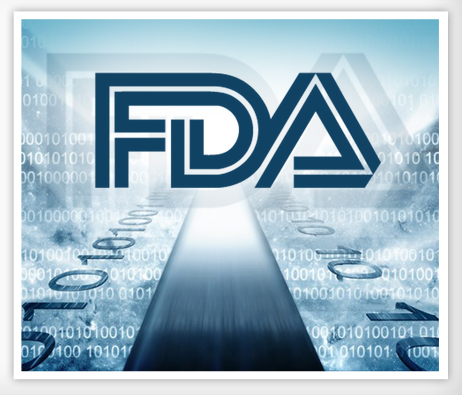Yale’s Office of Cooperative Research Granted “Safe to Proceed” Notices to Two INDs: COVID-19 Related Multi-Site Clinical Trial in the Works

Yale’s Office of Cooperative Research Granted “Safe to Proceed” Notices to Two INDs
COVID-19 Related Multi-Site Clinical Trial in the Works
August 27, 2020. New Haven, CT. - Today, the Office of Cooperative Research (OCR) at Yale University announced that in late July the FDA (Food & Drug Administration)(link is external) granted “Safe to Proceed” notices to two separate Investigational New Drug [IND] applications to conduct human studies of two novel therapeutic agents: AN19 (a thyroid hormone agonist, also known as Sobetirome or GC-1) and YPT-01 (a bacteriophage). Yale University holds the intellectual property on both investigational drugs.
“During this uncertain time, we have not wavered in our commitment to helping Yale faculty advance their research from Yale labs for maximum impact. These past few weeks, in particular, have been very exciting. Thanks to the hard work and passionate dedication of several OCR team members, two promising therapeutics will move to human clinical trials. This is precisely why we do what we do,” explains Jon Soderstrom, Managing Director, Yale Venture.
The AN19 trial was designed by Dr. Naftali Kaminski, Chief of Pulmonary, Critical Care and Sleep Medicine at Yale (Yale PCCSM) together with Dr. Argyrios Tzouvelekis of the University of Patras, Greece, as a Phase 2 prospective, randomized, double-blind, placebo-controlled study in hospitalized patients with moderate-to-severe COVID19 infection. It will evaluate the safety and efficacy of AN19 in preventing and/or treating ARDS with the endpoints of reducing the need for mechanical ventilation or mortality in this patient population. The drug has been shown to improve lung injury and inflammation in animal models of Acute Respiratory Distress Syndrome (ARDS) and reverse fibrosis in several animal models of Pulmonary Fibrosis. Dr. Kaminski believes it holds promise for treating acute and chronic lung conditions, including ARDS caused by COVID19 or other causes, Idiopathic Pulmonary Fibrosis (IPF) and the increasingly recognized post-COVID19 lung disease.
“To be honest, I had my doubts whether we could proceed so rapidly during a pandemic. In addition to designing the trial and obtaining FDA approval, we had to certify and formulate AN19 to ensure it was ready for distribution. These tremendous tasks were achieved in record time through the leadership and unlimited efforts of the OCR team, in collaboration with Yale’s Center for Clinical Investigations and external experts and collaborators.” said Kaminski and added “This was a superb example how at Yale, we are indeed all in this together.”
The second IND supports a clinical trial for inhaled bacteriophage (phage) therapy. Though phage have been used on a case-by-case basis for more than 100 years, no phage therapy has demonstrated efficacy in a randomized, controlled clinical trial in the western world. One of the major limitations of phage therapy is that, like traditional antibiotics, bacteria evolve resistance to phage. Paul Turner and his colleagues have developed a unique Serial Monophage Therapy approach, which turns evolution into an advantage by actively reducing antibiotic resistance and virulence in targeted pathogens. This approach stands in contrast to the phage cocktail approaches taken by others in the space. Turner’s team have successfully treated 13 patients under emergency INDs, prompting development of a blinded, randomized, placebo-controlled study to assess safety and efficacy of inhaled phage therapy in 36 cystic fibrosis patients with P. aeruginosa infections.
“This trial also lays the groundwork for a phage therapy center for patient treatment at Yale, a fitting place given more than 50 years of combined phage therapy expertise provided by Dr. Paul Turner, Dr. Ben Chan, Dr. Jon Koff, director of Yale’s Adult CF program and a member of Yale PCCSM. and the rest of the Yale phage team,” said Natalie Ma, Blavatnik Fellow at Yale. The asset for this trial has been optioned to Felix Biotechnology(link is external), a startup spun out of Yale that has raised $1 M in seed funding.
About the Yale Venture:
Since its founding in 1982, the Yale Venture (OCR) has built a significant portfolio of inventions and patents and has grown into an engine of regional economic development. Its mission is to facilitate the translation of research from Yale’s labs into products and services that benefit society. OCR is recognized as a leading force for catalyzing economic growth by identifying, counseling and nurturing early-stage technologies and guiding the transition into robust companies. More information is available at https://ocr.yale.edu/.
Forward Looking Statements:
Certain statements in this press release are forward-looking within the meaning of the Private Securities Litigation Reform Act of 1995. These statements may be identified by the use of forward-looking words such as “anticipate,” “believe,” “forecast,” “estimate,” “expect,” and “intend,” among others. There are several factors that could cause actual events to differ materially from those indicated by such forward-looking statements. These factors include, but are not limited to, risks related to failure to obtain FDA clearances or approvals and noncompliance with FDA regulations; delays and uncertainties caused by the global COVID-19 pandemic; risks related to the timing and progress of clinical development of our product candidates; our need for additional financing; uncertainties of patent protection and litigation; uncertainties of government or third party payor reimbursement; limited research and development efforts and dependence upon third parties; and substantial competition.
